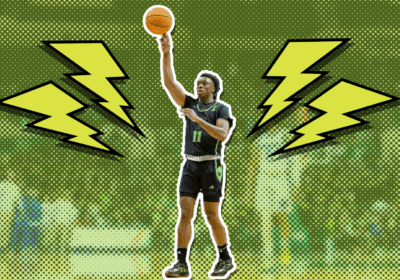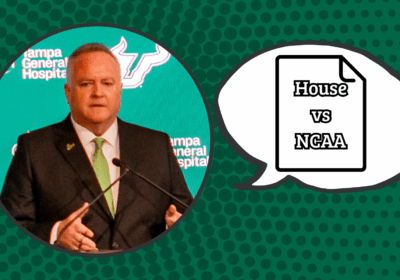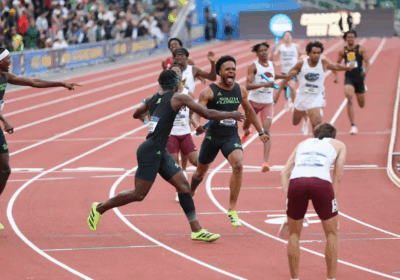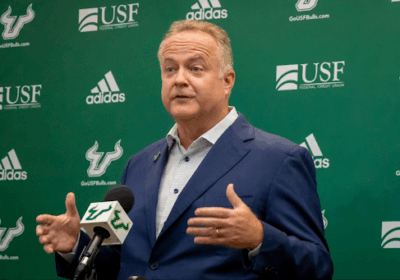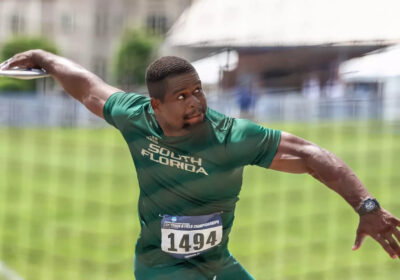USF gambling expert weighs in on rise of college student sports betting

As the room buzzed with cheers after a last-minute touchdown, Marvin Karlins noticed something strange at a Super Bowl party.
It wasn’t excitement over a scoring play during the game, but cheers for a successful wager.
Related: USF softball dominates Memphis, sweeps weekend series
“[Patrick] Mahomes threw a meaningless touchdown pass at the end of the game and people erupted,” said Karlins, a USF professor in the Muma College of Business and a gambling behavior expert. “Not because their team won, but because that pass pushed the score over.”
Karlins said moments like these show how deeply sports betting has become embedded in American culture.
He believes it’s particularly dangerous for college students, who have unprecedented access to gambling through their phones.
“You can use your phone to bet, it’s always there,” Karlins said. “So it makes it a lot easier to do and the easier it is to do it, the more likely it is you’re going to lose.”
A 2023 NCAA survey of 3,527 18-22 year olds found that 67% of students living on college campuses had participated in sports wagering. The survey revealed that 41% of student bettors had placed wagers on their own school’s teams, while almost 35% admitted to placing bets with other students.
Additionally, 16% of respondents engaged in what the NCAA defined as “risky behavior,” which includes betting multiple times per week, wagering $50 or more on a single bet, or losing $500 in a day.
In Florida, online sports betting is legal but narrowly regulated. The Seminole Tribe of Florida currently has exclusive rights to offer sports betting through its Hard Rock Bet app, following the 2023 West Flagler vs. Haaland ruling.
However, geographic restrictions have proven to be ineffective barriers for students looking to place bets. The NCAA’s survey found similar betting rates in states where gambling is illegal and those where it is permitted.
But Karlins said the legality of sports betting isn’t the issue.
“The problem is people don’t understand the risks,” he said. “They think they’re smarter than the system.”
Karlins said what draws students to sports betting in particular is the illusion of having an edge. He said casinos have a “mathematical advantage” over players, which turns students away from betting in person.
Karlins said he’s worried about the mental health impact on students’ sports betting. He said students endanger themselves when they participate in the pastime.
“Sports gambling, like all gambling, can become addictive,” Karlins said. “And the thing is, the more you gamble, the more likely you are to lose. People can lose everything.”
Despite the risks, Karlins doesn’t advocate for an outright ban on student gambling. He said students should view betting like they would any other entertainment expense.
“If you go to the movies and spend $100, you don’t expect to get that money back. Treat betting the same way,” he said. “It’s entertainment, not income.”
But Karlins said he already sees the cultural shift playing out across sports.
“Sports are becoming less about the game and more about the action,” he said. “And when that happens, you risk losing what makes it special.”
Karlins said he advises moderation above all else.
“If you lose money, don’t chase it. That’s how problems start,” he said. “It’s better to walk away.”


